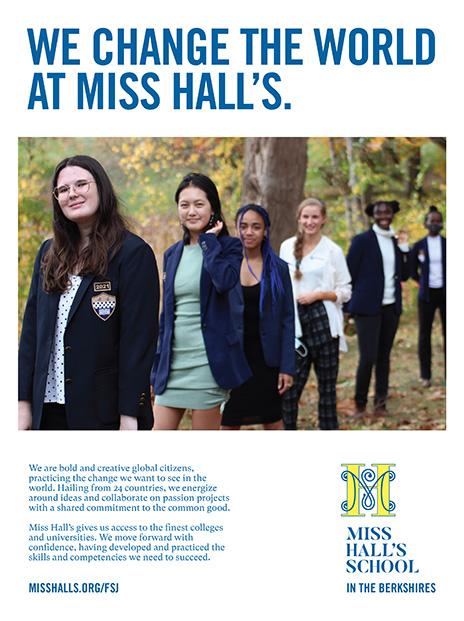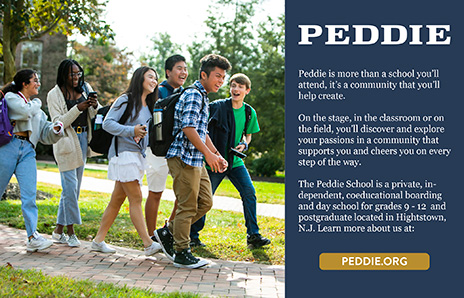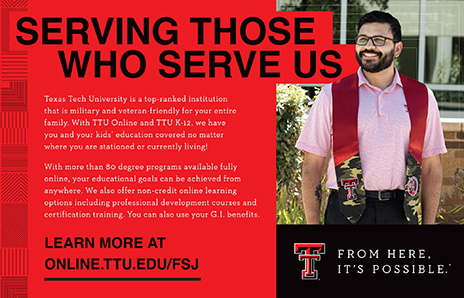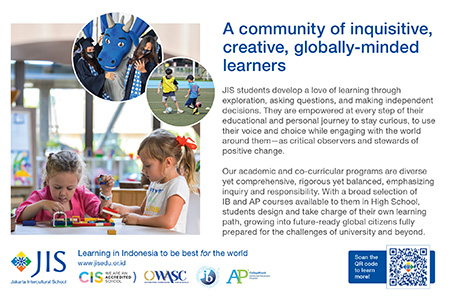Transition to College: Supporting Third Culture Kids’ Mental Health
A cosmopolitan perspective and resilience notwithstanding, Foreign Service young people face challenges that can be daunting in the transition to college.
BY MEGAN NORTON
Sarah, the daughter of a Foreign Service officer, attended international schools her entire upbringing and returned to her passport country—the United States—for university studies. During her first residence hall fire drill, she dropped to take cover for what she thought was an air raid warning. Her roommate laughed and dragged her outside. She experienced similar confusion later when her professor marked her down for turning in an assignment a little past midnight on the due date. She had lost track of time talking to a friend in a different time zone, halfway across the world.
Sarah continued to have cultural mishaps and felt out of place, even though she used to pride herself on her adaptability. Misunderstood by peers and sometimes professors, she began to lose her sense of belonging and purpose for being in college. She needed support.
Many factors can contribute to anxiety, depression, stress, and related mental health issues among students during their freshman year of college. From managing new academic workloads to socializing in different student clubs and organizations, and from pulling all-nighters to handling their personal finances, students should be equipped to know how to approach these life changes and responsibilities before they step foot on campus.
For third culture kids (TCKs) like Sarah, returning to their passport country (or “home” country) for college, the transition can be even more complex than for their peers who are moving to campus from another county or state. It is useful to look ahead to what expectations and realities a TCK will face freshman year as supplemental challenges may make them particularly susceptible to mental health issues. Prepare your teen for mental health and transition challenges before they enroll.
Openly Discuss Mental Health with Your Teen
Parents, caregivers, mentors, and counselors all play vital roles in safeguarding teens’ mental health. To connect with your teen on mental health, begin to build trust and safety around the conversation by modeling emotion management. Use descriptive emotion words to describe how you feel in different situations and demonstrate helpful ways to process strong emotions.
One way to value feelings is to acknowledge the truth of a current emotion and then to state what action to take to move through it:
Mental Health Lifelines
In case of emergencies when university students may feel overwhelmed, unsafe, or capable of harming themselves or others, many campuses post widely about a national suicide prevention hotline that they can text 988 or call (800) 273-8255. For other mental health resources, visit Mental Health America, Life on Campus, and National Alliance on Mental Health (NAMI), Mental Health in College.
- Even though I feel devastated and I need a do-over with you, we’ll continue to communicate and figure out how to move through this together.
- This is tough for me, and I know that I have people supporting me to help.
- Even though I really feel like I messed up, I know that I can say sorry and ask for forgiveness.
Encourage family members to acknowledge and comfort one another. Allow for all emotions to be expressed in the home. Create safe spaces for this, and also be open to conversation.
Approach the topic of mental health as a conversation rather than a lecture to start a dialogue about what concerns and stressors are present in your teen’s academic, social, and cultural spheres. Model and practice that there is no shame in asking for and seeking help and support.
At home, look for your teen’s emotional cues and validate their emotions. It is important for them to feel safe in sharing their feelings about the upcoming life transitions. If your teen minimizes or downplays their emotions in conversation, give them explicit and consistent invitations and permission to process them in other ways. For example, encourage them to take a run, do a puzzle, or create an art piece to release how they feel about upcoming transitions.
Encourage healthy self-care habits. Help your teen to establish sleep routines, meal management, and consistent physical activity that they enjoy. These life skills can help them to cope with increased stress and freedom while in college.
Remind teens that their stress in transitions won’t last forever, and that it is normal to feel anxious about upcoming life transitions. Reinforce the value of practicing self-care routines that make them feel better. Finally, openly discuss the possibility of talking with counselors and doctors as an additional way to manage anxiety, depression, and stress.
Recognize TCK Factors in Transition
Some anxiety-provoking situations that may occur in the university transition happen months before the semester starts.
Changes in country, community, and cultural norms can spike anxiety, stress, and depression for TCKs who do not take the time to have closure with people they are connected to and with places they lived. Suggest your teen host and attend farewell parties, write thank-you letters to teachers and other significant community members who have been influential in their lives, and be intentional about revisiting important local landmarks.
Work with your teen to define what will make them feel ready to move on to university.
The first days after arrival on campus bring many moments of transition shock. A TCK can ask to attend pre-university programs designed for international students such as orientation and move-in mixers. At these, your teen can learn about the community and cultural norms as they begin to understand their new environment. Some universities, such as Cornerstone University in Grand Rapids, Michigan, have dedicated orientation sessions for TCK students to process their experiences living and settling into a new country and culture.
When meeting new people, TCKs sometimes struggle to find a succinct way to say where they are from. This can be disorienting for them and also for their new peers at university who want to find connections and commonalities based on location. Keeping in mind cultural context and who is asking the question, it can be helpful for TCKs to have a concise answer like, “I have lived most of my life abroad; I just moved from [insert country here]” or “I was born in the U.S., but have lived in many countries.”
Preparing answers to these simple but complex questions can open the conversation up for additional follow-up questions and can also help create context for non-TCKs to appreciate the complexity of the “where are you from” question. If the conversation continues, third culture kid teens should be ready to ask questions that encourage others to elaborate on their background.
Approach the topic of mental health as a conversation rather than a lecture to start a dialogue.
Perhaps the TCKs will have the most “exotic” backgrounds in terms of countries lived, languages spoken, and cultures experienced, but they need to exercise the same level of curiosity and respect for others’ stories as well.
TCKs can also intentionally seek out safe spaces. In their article, “Where Are You From? Raising Awareness of Third Culture Students in Higher Education,” published on the University of Edinburgh Teaching Matters blog, Dr. Laura Cariola and Tamara Lai suggest that TCKs network with students with similar multicultural experiences who value and appreciate diversity.
Finding a community of others with a similar upbringing can provide space to tell stories and relate without fearing that they are “bragging” or being misunderstood by monocultural peers.
Recommend that your TCK research what student organizations and clubs are active on campus that may focus on multicultural students’ experiences and skills. Universities such as Lewis and Clark in Portland and Texas A&M have social clubs specifically for TCK students. MuKappa International is a network of TCK student clubs at several Christian faith-based institutions. Even though your TCK may not want to be involved with these communities, it’s helpful to know that they exist and can provide support.
High school counselors and teen mentors can encourage TCK teens to introduce themselves to their resident advisers, counseling staff, and future roommates before starting the academic semester. These steps will help them develop a community and a practice for reaching out to people who can help when university life seems overwhelming.
Research Mental Health Resources at the University
Organizations for Transition Support
If schools are looking to improve their transition support, they can contact several organizations such as Safe Passages Across Networks, Intercultural Transitions, Foreign Service Youth Foundation, and TCK Training that all facilitate workshops and programs among families and students. See also TCK Connect groups: MuKappa International and Interaction International.
In general, teens can benefit from additional guidance and strategies on how to deal with time management, emotion management, and relationship management at university. Encourage teens to connect with campus resources and organizations before arrival.
On-campus resources can include individual and group counseling services, support groups, and academic accommodations. Seeking treatment outside the university context is also an option. Many university counseling centers are set up to deal primarily with crisis interventions and will direct students to seek private providers after a set number of appointments.
Telehealth services have become more widely used and available since 2020. Insurance and licensing regulations vary, so research what could be the best fit for your teen. Check the Psychology Today database and the International Therapist Directory for potential providers. Both have filters to search with to consider place and insurance coverage.
If possible, encourage your rising college student to connect with mental health counseling now that they can continue the relationship on campus. Teach them about medical billing and insurance, two practical skills they’ll need once they no longer live at home. Keep in mind that the HIPPA and privacy laws on U.S. campuses prevent the sharing of both patient information by providers and of updates on student performance by the school.
Encourage your TCK to know how to advocate for themselves and explain their upbringing as it relates to their mental health. Most providers will have no knowledge of this kind of life, so your TCK should be prepared to share information about their background.
Sometimes TCKs are misdiagnosed with multiple personality disorder or depression because therapists aren’t aware of the challenges in cultural adaption, identity formation, and sense of belonging in transition. Belonging Everywhere and Nowhere, by Lois Bushong, is a good resource for them.
Establish and Agree on Action Plans
Ask your teen about their worries for college and that transition. Brainstorm an approach plan together about how to deal with the anxieties college life can cause.
One of the most intimidating parts of the college transition for TCKs is the need to build a new support system. Help your teen to identify and connect with safe adults they can turn to—either on campus or nearby. If there is a weather emergency that requires campus evacuation or a reason for residence hall closures, your teen will have a person to call and stay with in the local community.
Further, it’s important to discuss where your teen will go during semester holiday breaks such as Thanksgiving break or spring break, especially if residence halls are closed. Having an initial travel plan will ease anxiety about finding a friend to host them, especially in the first year.
Having emergency contact information is also needed. Agree on whether you can contact their roommate or friend if you haven’t heard from them and are worried. Provide emergency contact information to your teen if they can’t get hold of you at your current post.
Your teen is one of many who will face new challenges completely on their own in college. Many secondary international schools already have fantastic programs in place to support the socioemotional TCK transition realities.
Third culture kids have a unique background of cultural adaptation, resilience, resourcefulness, flexibility, and creativity that should make them particularly adept at “adulting” when heading off to college. Usually, TCKs have had a range of experiences that make them mature, articulate, and poised, traits that help other adults feel like TCKs have it under control.
Of course, this worldly perspective and perceived maturity can also mask the mental health challenges that are occurring in a TCK’s transition process. Ensure that your teen knows where and how to reach out for help when they feel overwhelmed.
When sharing or linking to FSJ articles online, which we welcome and encourage, please be sure to cite the magazine (The Foreign Service Journal) and the month and year of publication. Please check the permissions page for further details.
Resources
Articles
- “Adulting While Transitioning: TCKs Alone at University,” Megan Norton
- “Anxiety in College: What We Know and How to Cope,” Nicole J. LeBlanc and Luana Marques
- “How to ease the transition to college when mental health is a concern,” Fran Kritz
- “Overwhelmed? Steps to unwind and find your way through,” Brianna White
- “What About Our Kids?,” Kim Deblauw (January-February 2016 FSJ)
- “Where are you from? Raising awareness of Third Culture Students in Higher Education,” Laura Cariola and Tamara Lai
Books
- Belonging Beyond Borders, Megan Norton (2022)
- Belonging Everywhere and Nowhere: Insights into Counseling the Globally Mobile, Lois Bushong (2013)
- Raising Global Teens: A Practical Handbook for Parenting in the 21st Century, Anisha Abraham (2020)
- Safe Passages: How mobility affects people & what international schools should do about it, Douglas W. Ota (2021)
- The Global Nomad’s Guide to University Transition, 2nd Edition, Tina L. Quick (2022)
Course
- Foreign Service Institute—Encouraging Resilience in the Foreign Service Child (MQ500)
Therapy and Coaching*
Here are some of the TCK therapists and coaches we know of who have worked with FS kids:
- Aleka Bilen Consulting
- Brianna White, Intrepid Counseling, LLC
- Eleni Vardaki
- Jamey Lewis, Courage Life Coaching
- KC360 Admissions Academy
- Lauren Steed, Nomad Educational Services
- Megan Norton (author), Intercultural Transitions
- Michael Pollock, Daraja
- Rachel Cason, Life Story Therapies
- Sa-Eun Park, The Asian Alien
—Megan Norton
*Listings here do not imply AFSA endorsement.
Read More...
- “Building Resiliency in Global Nomads” by Rebecca Grappo, The Foreign Service Journal, December 2008
- “New College, New Culture: Preparing for a Strong First Semester as a Third Culture Kid” by Hannah Morris, The Foreign Service Journal, June 2017
- “Foreign Service Student Guide to Creating a College List” by Hannah M. Morris and Lauren M. Steed, U.S. Embassy Budapest, The Foreign Service Journal, June 2018














